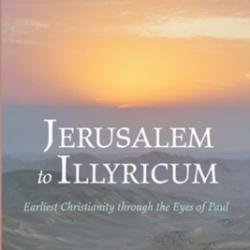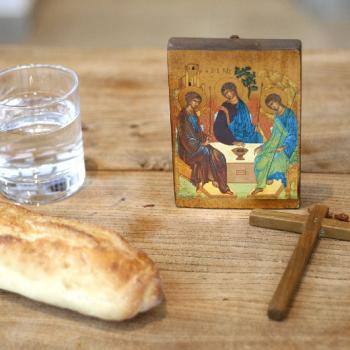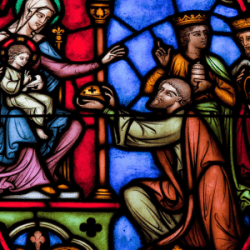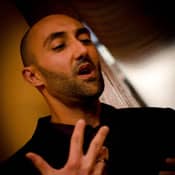Prior to the start of Ramadan, I was frequently enjoying the song "Clarity," by Zedd. The lyrics are quite intriguing, and they have caused me to reflect on many things. Now, as I continue to struggle through the long, hot days of Ramadan, two lines of this song seem to resonate deeply:
If our love is tragedy, why are you my remedy?
If our love is insanity, why are you my remedy?
On the surface of it, it seems both tragic and insane: Forgoing food and drink (even water) for about seventeen hours every day for an entire month. I am sure that this is what some, either non-Muslim or non-religious, people say to themselves when they behold Muslims struggling through Ramadan in July—"What sort of God makes people do that?"
Hence the words: "If our love is tragedy, why are you my remedy? / If our love is insanity, why are you my remedy?"
We go through the "tragedy and insanity" of the fasts of Ramadan because our Lord, our God, is truly our "remedy." Our God is truly an awesome God who gives us so much throughout our entire lives. His most holy Name is a remedy for stress and spiritual distress. Thoughts of His Greatness are a remedy for the despair that can come with the human condition. Remembrance of His bounty is a remedy for all that pains us.
His most holy Word is a remedy for the ailments of the spiritual heart. His tradition is a remedy for the ills of pursuing a purely material life without any regard for the spirit. The tradition of His Prophets and Message-bearers is a remedy for the spiritual waylaying of Satan.
The ritual prayer, solely for His remembrance, is a remedy for the toils and chaos of life. Ideally, when we enter into the Divine Presence in our prayers, it is an escape of solitude and spiritual rebirth. The charity that we pay is a remedy for the covetousness of our own souls. The Hajj, a once-in-a-lifetime pilgrimage to His house, is a remedy for forgetting from where we came and to where we are ultimately going.
And, truly, the fasts of Ramadan are a remedy for the dominance of base desires and the dimming of the heart caused by life on this earth. The fasts of Ramadan are a remedy for the disregard for the poor and needy, who have to forgo food and drink involuntarily. The fasts of Ramadan are a remedy for spiritual death, which can accompany a life on earth without any spiritual recharging, such as Ramadan accomplishes.
Yes, it is hard—very hard—during the long (really long) and hot days of July. In fact, if the fasts cause physical harm, then the person must not fast. Yet, if we can do it—struggle through the long days—we will get a benefit that is truly beyond recognition. Moreover, because God is the remedy for all that ails us, the very least we can do is fast when He asks us to do so. It is the least we can do to show our love for a God that has loved us before we were born and will love us long after we are gone from this world.
So, yes, fasting during July may seem like "insanity" and a "tragedy" of grand proportion. But if those who look at us with bewilderment truly knew about the treasures that await those of us who are fasting, they would not hesitate to join our ranks.
12/2/2022 9:09:41 PM





